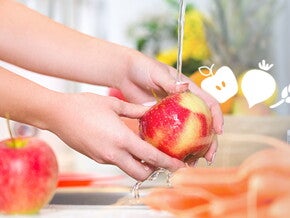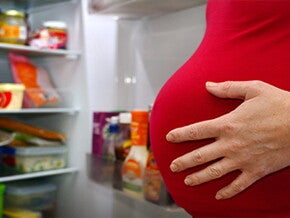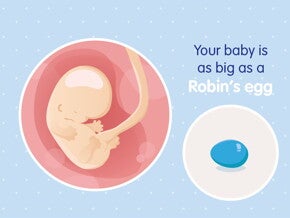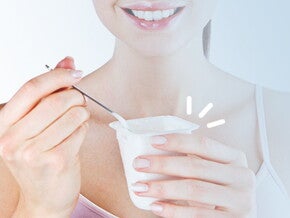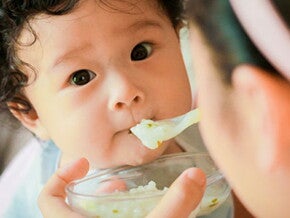
The drinks you offer your baby can have a huge impact on the amount of calories he consumes. Sugary drinks, such as juice, sports drinks, and soft drinks, also take up valuable space in his little tummy, crowding out vital milk, water, and nutritious foods. The only beverages your baby needs are milk and water. Babies continue to benefit from milk for their calorie and nutrient needs. Water is also important as it is involved in practically all body functions. And now that your baby is 10-12 months old, he may be learning that, besides milk, water is his beverage of choice. For more on the importance of water, see Make sure you offer your baby fruits, vegetables, and water each day.
Unfortunately, in some countries, a large percentage—around 30%— of babies between six and 12 months old consume drinks with added sugars. Research shows that the more drinks with added sugars your baby has, the poorer the nutrient quality of his diet. What’s more, there is a direct link between the number of sugar-sweetened beverages you, as his mom, drink and the sugary foods and drinks your baby consumes. In fact, one recent study revealed that children of moms who drank soft drinks every day were almost two times as likely to be introduced to foods or drinks with sugars than those whose moms never drank soft drinks.
Avoid sugary drinks
Although you may think your 10-12-month-old baby is now old enough to have small amounts of sugary drinks, try to avoid offering them at all. He doesn’t need the extra calories these drinks provide, and he may start to show a preference for their sugary taste, instead of enjoying the taste of water, the healthier option. That’s why it’s important to make water the beverage of choice, along with milk. Make sure the whole family sets a good example by drinking water at the dining table and offer it to your baby in a cup with every meal and small sips throughout the day.
Sources
Dattilo AM Programming long-term health: Effect of parent feeding approaches on long-term diet and eating patterns. In: Early nutrition and long-term health, mechanisms, consequences and opportunities. Ed., Saavedra and Dattilo, Elsevier, 2017: 471-95.
Jequier E, Constant F. Water as an essential nutrient: the physiological basis of hydration. Eur J Clin Nutr 2010; 64(2):115-23.
World Health Organization. Infant and young child feeding: Model chapter for textbooks for medical students and allied health professionals. Geneva, World Health Organization, 2009.
